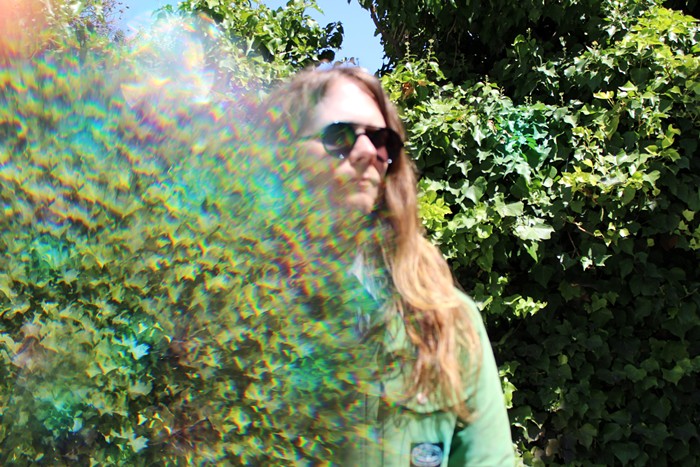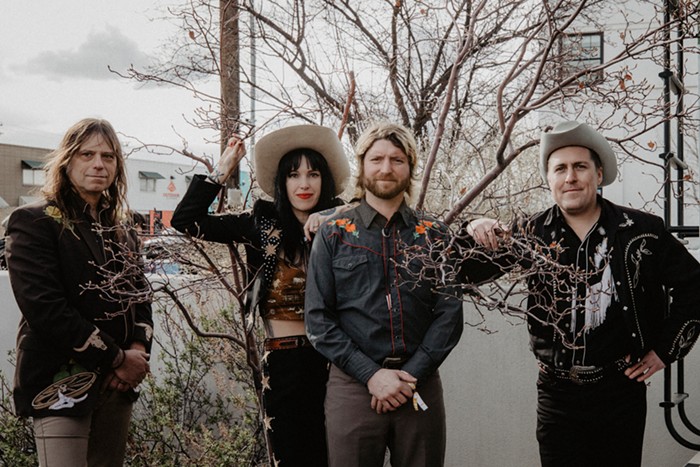THE PROBLEM STARTED in the mid-1960s, when a misguided, overzealous fan spray-painted the words "Clapton Is God" on the wall of the Islington underground station. Despite the slogan, Eric Clapton was only one of many, many noteworthy guitarists playing in Britain at that time. As he says in his autobiography, "I was a bit mystified by this, and part of me ran a mile from it. I didn't want that kind of notoriety."
Was Clapton a better guitarist than, say, Fleetwood Mac's Peter Green, or the Creation's Eddie Phillips, or Fairport Convention's Richard Thompson? Incontrovertibly not. But perhaps that graffiti was directly responsible for the puzzling esteem Clapton has accrued over the years, to the point where he's often named the world's greatest living guitarist (since Hendrix is, you know, dead) despite a nearly endless list of guitarists who have consistently made more interesting music. It could even be said that Clapton has spent the past 45 years proving precisely that he is, in fact, not God.
It took him a long time to embrace the spotlight. He was too nervous to release his most artistically triumphant work, the 1970 double album Layla and Other Assorted Love Songs, under his own name, picking the moniker Derek and the Dominos instead. A crippling heroin addiction followed, which took him out of the limelight for several years in the early '70s.
If at that point Clapton had become a heroin casualty, his checkered career—with stints in the Yardbirds, Cream, and Blind Faith—might have solidified into a respectable legacy. Instead, Clapton bounced back and went on to a long, long, long, bafflingly successful solo career, paved with mostly good intentions and almost entirely uninteresting music. His questionable 1974 cover of Bob Marley's "I Shot the Sheriff" was credited with bringing Marley's music—and reggae as a whole—to the mainstream. But the song now sounds more like watery disco, with Clapton's thin, white vocals removing the sting from Marley's racially motivated lyrics.
Let's ignore 1977's Slowhand, which contains some of the most tedious rock hits of the 20th century, including a mumbling cover of J.J. Cale's "Cocaine," in which Clapton sounds like he's snorted enough of the stuff to numb his mouth permanently shut, and the painfully slow "Wonderful Tonight," in which Clapton's wife asks him if this dress makes her look fat. Let's also ignore the fact that in 1988, Clapton, a recovering alcoholic at this point, appeared in a Michelob commercial playing a juiced-up version of "After Midnight." Slowhand's most criminal atrocities took place in the early '90s.
In his defense, "Tears in Heaven" was never supposed to be a hit, originally tucked away on the instrumental soundtrack to 1991's Rush. But it was an odd choice to begin with, tacking a weepy song about the death of his four-year-old son onto a film about a couple of junkies. The song got wider exposure when Clapton performed it on MTV's Unplugged, along with a truly unforgivable desecration of "Layla," turning it into a strummy, shuffling little ditty designed for graying boomers to clap along to while remaining seated.
Clapton is still half-heartedly making new, dull music. His newest is titled, simply, Clapton, and includes the usual defanged blues retreads alongside standards by the likes of Hoagy Carmichael and Irving Berlin. One has to wonder what that '60s graffiti artist would make of it if he could have heard it then, and what words he'd choose to paint on the underground wall.



















